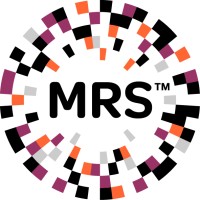Market Research Fieldwork Services for Key Industry Sectors
- Home
- Market Research Fieldwork Services for Key Industry Sectors
Certified experience in a wide range of industry sectors
The Meenthe team’s market research experience covers most sectors, including food, automotive, banking, retail, education, energy and raw materials, real estate, fashion, healthcare, technology, transport and logistics, travel and tourism, and many others.
Defining the contours of a market study takes time and requires a certain amount of distance. That’s why we’re always on hand to put our experience to good use in advising you on the means best suited to your market and your challenges.
At retail level, the global food and beverage market is worth almost $10,000 billion a year, and is growing at around 5% a year. Food and beverages account for around 90% of global sales of fast-moving consumer goods (the remaining 10% is made up of non-food items such as hygiene and cleaning products).
The world’s leading carmakers in terms of volume are currently the Volkswagen Group, Toyota, Renault-Nissan-Mitsubishi, General Motors and Fiat-Chrysler-PSA, who collectively account for around half of all new cars sold.
The USA is the world’s largest financial center, with a value of 1.5 billion USD in 2018, followed by the UK, China and Japan. Financial services are estimated to account for between 12.0% and 19.5% of the global economy. The sector continues to grow on a global scale, but faces increased scrutiny for financial security and stricter government regulation.
A key market for the French economy, beauty is a dynamic sector in full expansion. On an almost daily basis, new cosmetics brands and companies are created around revolutionary and original concepts.
While markets in Asia-Pacific, Africa and the Middle East are still experiencing significant growth in “hard” retailing, the USA and Europe are suffering from difficult market conditions that can largely be attributed to the rise of online retailing.
Around 1.3 billion children, adolescents and young people are enrolled in primary and secondary schools worldwide. In addition, around 240 million students are enrolled in tertiary education, meaning that around 20% of the world’s population participates in primary, secondary or tertiary education.
In 2018, global energy demand grew by 2.3% and investments in the energy sector totaled $1.85 billion. Record levels of CO2 emissions in 2018 and growing awareness of the short- and long-term impacts of climate change are driving research and investment in energy efficiency measures and renewable energy sources.
According to a study by Savills, real estate is by far the world’s largest store of wealth, with an estimated value of 280,000 billion USD at the end of 2017, around 50% more than the total value of equities and debt securities.
Worldwide, the apparel industry (clothing, footwear and accessories) is worth around $1,500 billion a year, while the global jewelry and cosmetics markets are each worth a further $500 billion a year.
According to Gartner data, global IT spending is around $4,000 billion a year, with North America, Western Europe and Asia-Pacific being the biggest spenders. Overall spending is increasing by 3-4% a year, but sectors such as enterprise software and IT services are growing much faster.




